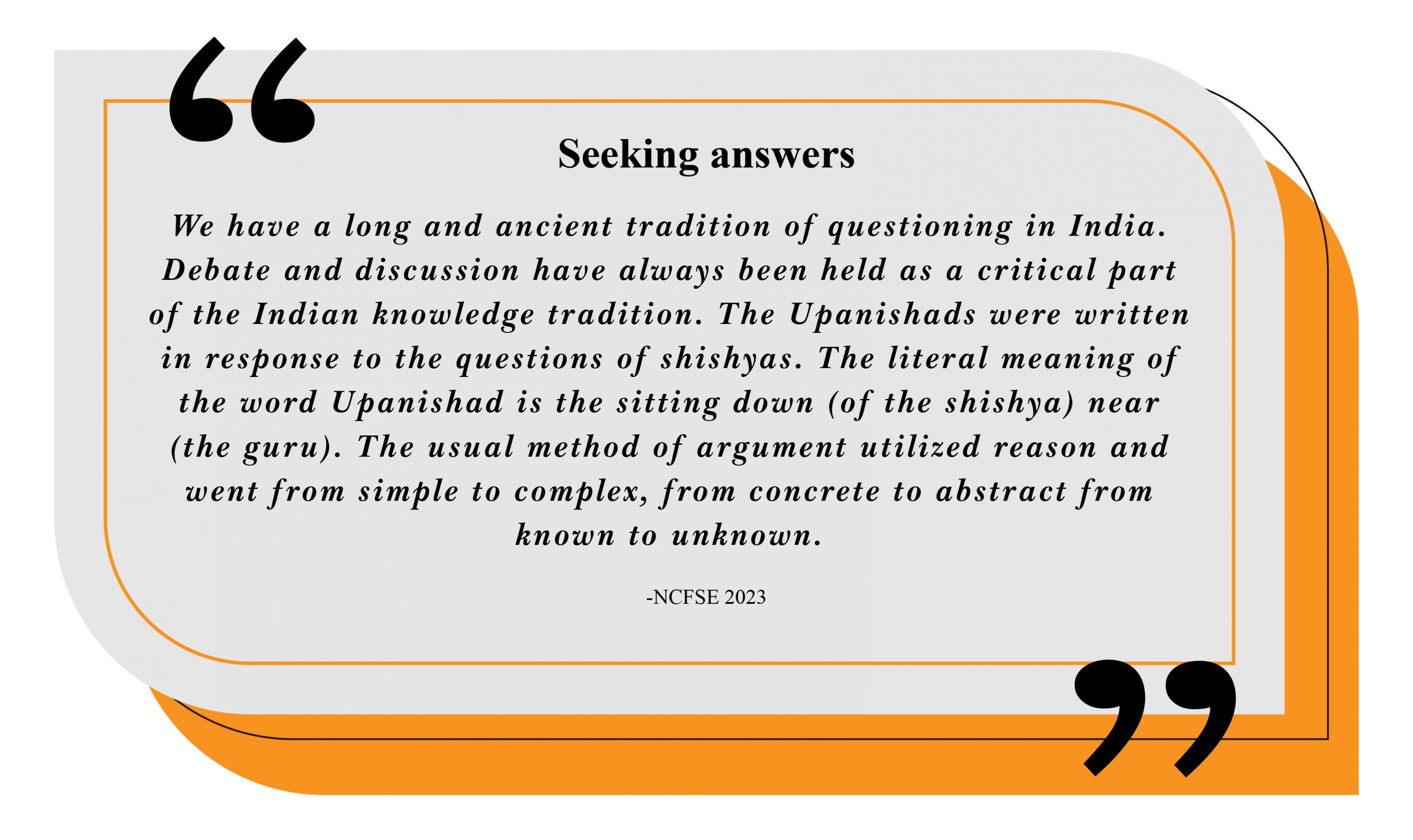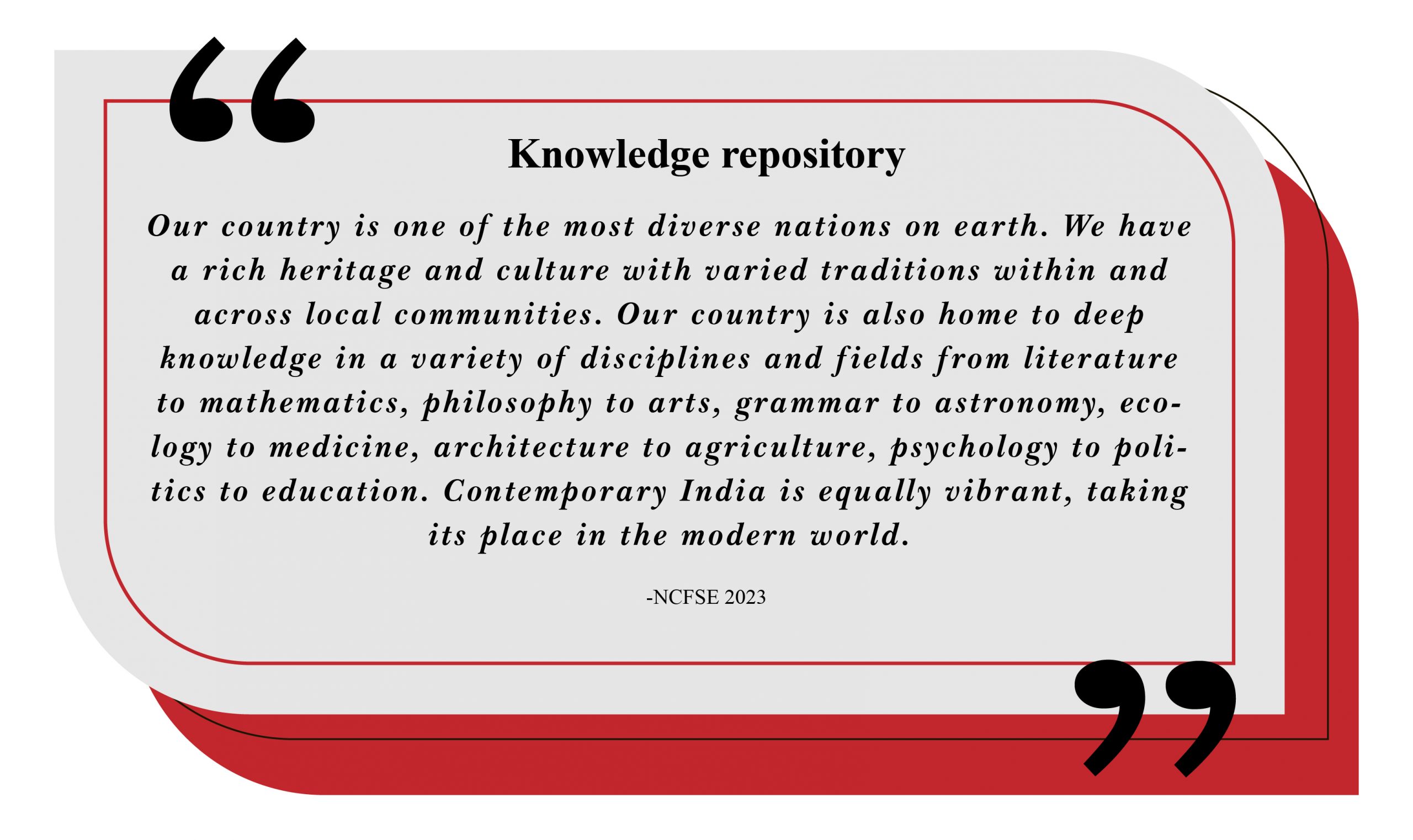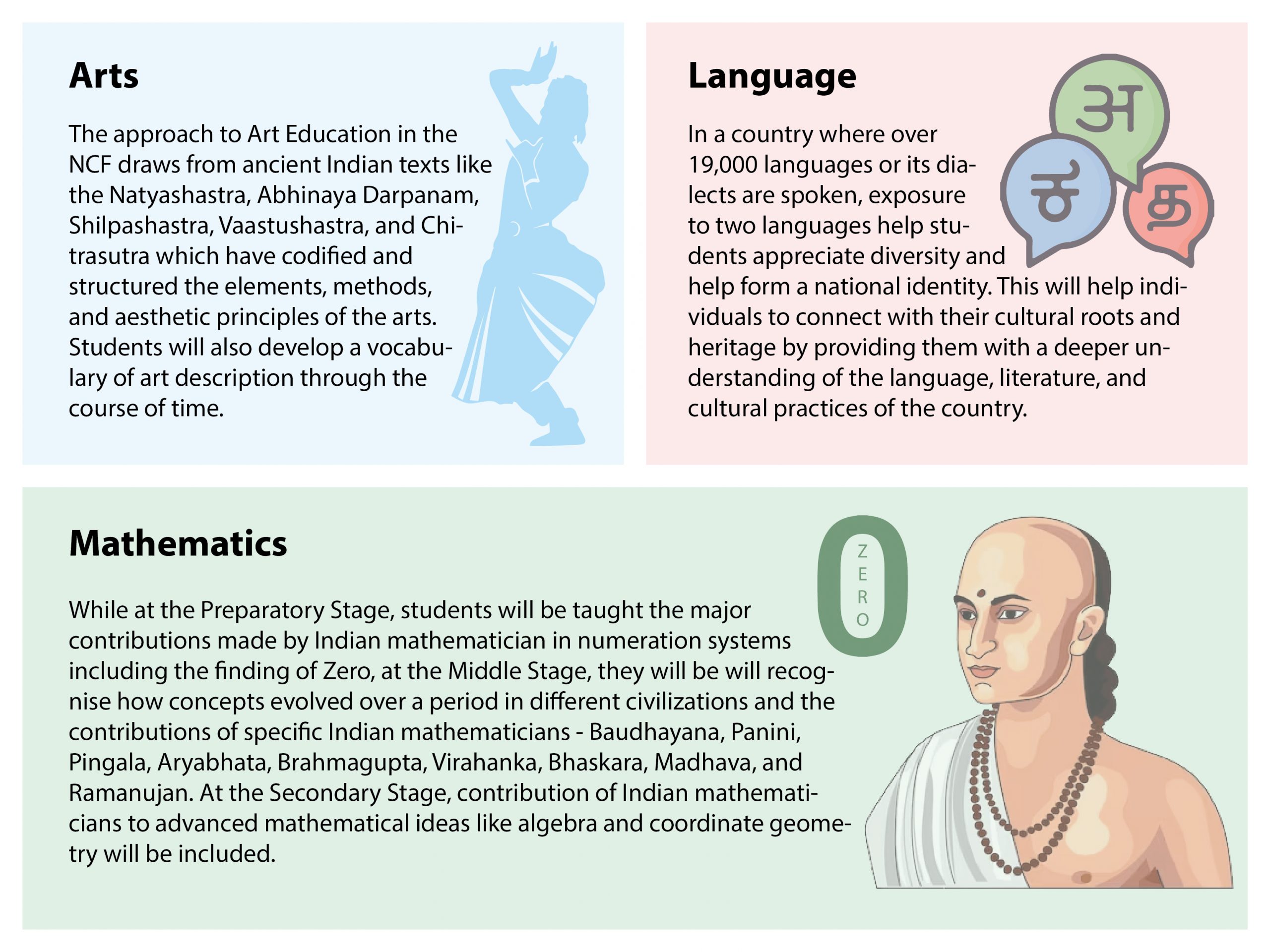Draft NCF promotes curriculum rooted in Indian knowledge systems
Reshma Ravishanker
Drawing from Panchatantra, Jataka, and Hitopadesha fables and other inspiring tales from Indian folklore is a great way to inculcate values in children at the foundational stage, says the National Curriculum Framework for School Education (NCFSE) 2023.

The team of experts constituted to draft the NCFSE headed by former ISRO chairman K Kastirirangan believes that as promised in the National Education Policy 2020, the NCF must be deeply and strongly rooted in Indian thought and knowledge systems.
The 628-page document gives several examples and instances from Indian tradition and knowledge systems which can be incorporated in the curriculum. It says that all curriculum and pedagogy will be rooted in the Indian and local context and ethos in terms of culture, traditions, heritage, customs, language, philosophy, geography, ancient and contemporary knowledge, societal and scientific needs, indigenous and traditional ways of learning.

At the foundational stage, it recommends that stories, arts, games, sports, examples, problems, be chosen as much as possible from the Indian and local geographic context. “Learning the value of seva is one of the Curricular Goals at this Stage. Children are given the opportunity to read and learn from the original stories of the Panchatantra, Jataka, Hitopadesha, and other fun fables and inspiring tales from the Indian tradition. Stories from the lives of great Indian heroes of history are also seen as an excellent way to inspire and introduce core values in children,” says the NCFSE.
In the higher classes, Knowledge of India or Indian Knowledge, Traditions and Practices or Indian Knowledge Systems can be one of the inter-disciplinary subject areas that students can select alongside other choices such as sustainability or legal studies.
At the Preparatory, Middle and Secondary Stages, the Draft NCFSE says that each curricular area will adopt and embed ancient knowledge to suit the needs of each discipline. Some examples include:

















Add comment